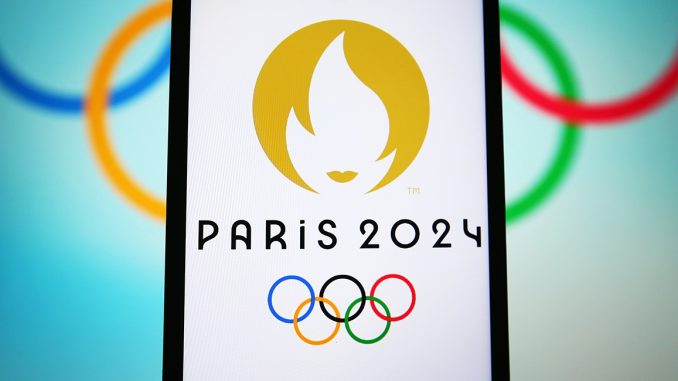
The countdown has begun—only six months until the 2024 Olympic Games. And already we can anticipate the serious challenges that female athletes will face in their quest for success—most critically, including male athletes who identify as women in women’s competitions.
Women competed for the first time in the Olympics at the 1900 Olympic Games in Paris. Now, 124 years later, with the Summer Games being held in Paris again, it would be a disastrous backslide if male athletes who identify as women are allowed to compete in female-only categories. Yet recent international pushes for so-called inclusion make this an all too real scenario for the upcoming Olympics.
Among those standing in the gap is Reem Alsalem, U.N. special rapporteur on violence against women and girls, who on Dec. 27, issued an official communication to the U.S. government warning that rule changes in women’s and girls’ sports at the national level would breach “human rights obligations.”
The special rapporteur’s letter makes clear that the Biden administration’s proposed changes to federal Title IX law requiring schools to permit males to compete in female-only sports would not only disadvantage female athletes but also seriously undermine the safety of women and girls.
As the special rapporteur states, changes to Title IX “would lead to the loss of privacy, an increased risk of physical injury, heightened exposure to sexual harassment and voyeurism, as well as a more frequent and accumulated psychological distress due to the loss of privacy and fair and equal sporting and academic opportunities.”
The result would be to “contravene the United States’ international human rights obligations and commitments concerning the prevention of all forms of violence and discrimination against women and girls on the basis of sex.”
This commonsense approach to protecting women runs contrary to that favored by the International Olympic Committee. In November 2021, the IOC introduced a new framework for the participation of transgender individuals in sports. It established that eligibility criteria should not exclude athletes from competition based on their gender identity and should not be based on an “unverified, alleged or perceived unfair competitive advantage” resulting from transgender status.
Under the false presumption that there exists no de facto performance advantage for biological males who self-identify as females, the Olympic framework further holds that any restrictions to eligibility criteria should have to prove a disproportionate competitive advantage. This is the grim reality confronting the women who train, work, and sacrifice so much to compete in sports at the highest levels.
Mirroring this approach, a group of former and current experts belonging to the Special Procedures of the Human Rights Council released an October 2023 policy paper with the claim that attempts to “use” the male-female categorization in sports is exclusionary to men identifying as transgender women.
The policy position holds that, “categoric exclusions of trans[gender] and intersex women from women’s sports is a prima facie violation of human rights obligations.” Never mind the obvious human rights violations that ensue when women are displaced or systemically disadvantaged on their own playing field by the participation of biological men.
As recognized by the Women’s Sports Policy Working Group, a group of former athletes and sports administrators, “If sports were not segregated by sex, female athletes would rarely be seen in finals or on victory podiums.”
Biological differences between men and women matter, most evidently in athletics. And contrary to what the U.N. experts suggest, “gender identity” is not a protected category under international human rights law. Rather, sex is.
Let there be no doubt: this is not about preventing transgender individuals from partaking in sports; it is about ensuring fair play and safety for all, especially women. Female athletes have the right to compete in a protected category, with a fair chance to win and with full consideration for their safety both on and off the field.
The toll of “inclusion” at the cost of fairness and safety for women in sports is mounting worldwide. This approach fails to adequately consider the clear scientific evidence that the two sexes are not equivalently situated in sports because of males’ physiological advantages over women.
Thankfully, science has well-documented men’s performance advantages over women in almost all athletic competitions. We need only look to the studies conducted by eminent gender experts such as Gregory Brown, Emma Hilton, David Handelsman, and Taryn Knox, among others, to understand the objective nature of these differences.
Men and women are equal, but not interchangeable. Only by shutting one’s eyes and ignoring the insurmountable scientific evidence can one claim that excluding male athletes from female categories is discriminatory. On the contrary, if biological men are allowed to invade female-only spaces, it will be women and girls who will pay the price of exclusion.
The Daily Signal publishes a variety of perspectives. Nothing written here is to be construed as representing the views of The Heritage Foundation.
Have an opinion about this article? To sound off, please email letters@DailySignal.com, and we’ll consider publishing your edited remarks in our regular “We Hear You” feature. Remember to include the URL or headline of the article plus your name and town and/or state.
